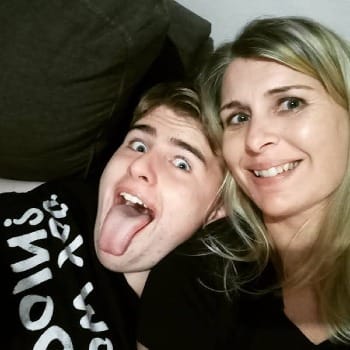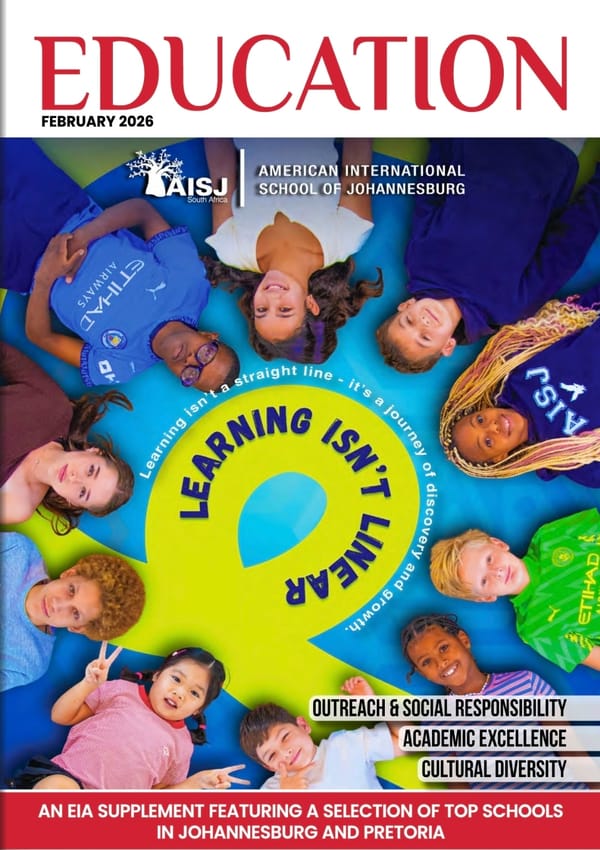Boldly Different: Parenting a Neurodiverse Child in a World That Doesn’t Get It

Raising a neurodiverse child often feels like an uphill battle against misunderstanding and judgement. As the mother of an incredible, twice-exceptional son, I know this journey all too well. James, now 20, is still in school and continues to surprise me with his growth and resilience. With high-functioning autism and profound creativity, he challenges societal norms every day. He’s simply “different " to many,” a child who doesn’t quite “fit.” And while that difference should be celebrated, it has often been met with judgement.
The Early Days: Learning to Protect Our Peace
From the beginning, James had a remarkable way of engaging with the world. His curiosity knew no bounds, and he would lose himself in his imagination, spinning stories and exploring topics far beyond his years. Yet, outside our home, moments of frustration or sensory overload often led to stares and unsolicited ‘advice.’
One unforgettable afternoon at Woolworths, James hit his sensory limit and bolted to the freezer section, climbing right inside and pressing his face against the cold glass, licking the frost to self-soothe. I immediately tried to intervene, though admittedly a bit embarrassed, but my attempts only made things worse, exacerbating the meltdown. Onlookers stared, some shaking their heads, others muttering about “discipline.” Feeling a mix of defiance and protectiveness, I decided to inject a little humour into the situation. “Here,” I said, to the gawkers, “3D glasses and popcorn for the show!” That moment didn’t change their judgement, but it reminded me that our peace was more valuable than their opinions.
Then there were the times he would hide in the most unexpected places. Once, at a pet supply store, James climbed into a dog kennel. When I tried to coax him out, he shouted for the whole store to hear, “You broke my arm!”—even though I hadn’t even touched him. Or the time he gathered a pocketful of goose eggs at a play area, only to have them crack and release their rotten scent at the worst possible moment. I could only laugh through the embarrassment, knowing these were all parts of his unique journey.
But some encounters left a more profound mark. I remember one day at Pick n Pay when James was having a tough time, and my mother had to take him outside to calm down quickly. As I finished our shopping, I overheard a woman telling the cashier that “if it were her kid, he’d get a fat smack.” My protective instincts flared up, and I approached her, saying, “That is my son, and you have no idea what he has to overcome every single day. If you don’t understand autism, keep quiet. If you do, be a help, not a hindrance.” I may have been fierce—some might even say too fierce—but I guarantee those onlookers left with a new perspective.
Handling Unhelpful Comments: Strategies That Work for Us
Over time, I’ve developed a few ways to navigate those inevitable, unwanted comments. Some of these responses are meant to educate, while others are about preserving our energy for the battles that matter.
- Highlighting James’s Strengths: Often, when faced with dismissive comments, I choose to respond with a focus on James’s unique qualities. I’ll say, “Yes, he’s struggling at this moment, but his attention to detail is extraordinary,” or “You’d be amazed by his creative mind.” Focusing on his strengths shifts the narrative, reminding both them and myself of James’s brilliance.
- Setting Firm Boundaries: When I’m simply not interested in ‘explaining’ my child, a firm but polite response helps. “Thank you for your concern, but I know my child best.” Establishing boundaries like this isn’t just about silencing judgemental voices; it reinforces that James’s well-being is my responsibility, and I don’t owe anyone an explanation.
- Redirecting with Empathy: Occasionally, I ask people to consider how they’d feel in our shoes. “Imagine if this were your child—how would you feel if someone said that about them?” This often softens people’s perspectives, if only briefly, and reminds them to think before passing judgement.
- Choosing to Walk Away: Not every comment warrants a response, and I’ve learned that sometimes, silence speaks volumes. When it’s not worth my energy, I smile, hold James’s hand, and we walk away, focusing on the moments that matter instead.
The Unique Challenges of Neurodiversity: Finding Our Path
Raising a child like James is both beautiful and complex. Like many neurodiverse children, he experiences the world with heightened sensitivity. He sees things in absolute terms, often interpreting phrases literally, which can lead to unintentional misunderstandings. Once, when someone asked to “pick his brain,” he stared in horror, thinking they genuinely wanted to take something from him. His coping mechanisms, like closing his eyes during noisy lessons to filter out the sensory overload, were frequently misinterpreted as disrespectful.
James’s high-functioning autism makes it difficult for people to “see” his challenges. Because they’re not outwardly visible, he’s expected to behave in ways that are simply impossible for him. And as his mother, I, too, am often held to those expectations and judged for not imposing those same unrealistic standards on him.
James Today: Growing Independence in a Supportive Environment
Today, James is in an environment that respects his needs while encouraging his independence. He’s learning that while the world may not always adapt, he can still advocate for himself and educate those around him. I see him stepping into his own, learning to handle moments of misunderstanding more confidently. And while he sometimes still needs my help, his supportive setting allows him to build resilience, find his ways of adapting, and be himself without apology.
A Message to Parents: You Are Not Alone
For every parent who’s been left out, criticised, or told how to ‘correct’ their child, know this: you’re not alone. This road can feel isolating, but together, we’re a powerful community. We understand what it’s like to see our children misjudged, their potential overlooked, and their unique gifts misunderstood. And we know the courage it takes to stand by them, to be their advocates when they can’t be.
To every parent who faces this journey, I hope that you, too, find the strength to set boundaries, to walk away when necessary, and to protect your peace. Because in the end, our children don’t need to be “fixed”—they need to be seen, heard, and celebrated for exactly who they are. Together, we can help create a world that lets them thrive without apology.
Here’s to walking this path with courage, supporting one another, and our beautiful, brilliant square pegs.
About the Author

Nicola Killops is a dedicated writer, educator, and advocate for neurodiverse communities. Drawing from her extensive experience in gifted and special needs education—and her journey raising her twice-exceptional son, James—Nicola shares insights, resources, and support for parents navigating similar paths. Her work emphasises the importance of understanding, resilience, and celebrating neurodiverse strengths.
You can follow her writing, join the NeuroParenting Hub community, and stay updated through The NeuroParenting Newsroom.





